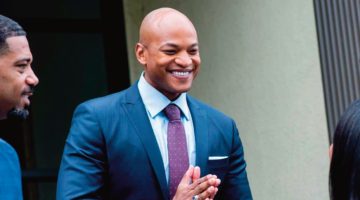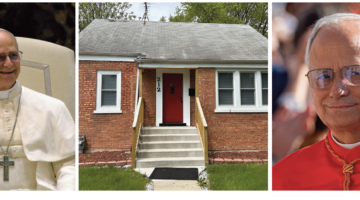 I recently returned from Lagos, Nigeria, where I participated in a workshop designed to move forward local plans to prepare for climate change.
I recently returned from Lagos, Nigeria, where I participated in a workshop designed to move forward local plans to prepare for climate change.
Lagos, the former capital, is the smallest of Nigeria’s states in area but the largest in population and economic clout. It is famous for its traffic jams or “go slows,” as they are called. Home to an estimated 18 million people, it is projected to be the world’s third largest city by 2015. It is a city of wealth and poverty, a city of islands and mainland, of hope and despair. Lately, the level of hope has risen under the administration of state Gov. Babatunde Raji Fashola, 49, who is serving his second term. He is known as “the action governor.” He opened our conference and was dynamic, impressing even someone as cynical about welcoming addresses as I am.
But what really impressed me was the commitment of all the various people in different departments of government, from ministers to supervisors to workers, who were involved in the workshop. They were excited about what their efforts were doing to improve the lives of Lagosians.
Things are changing in Lagos across the board, from tree planting in mini-parks to the building of a new financial center, Eko Atlantic City, designed for 400,000 residents and 250,000 commuters on 3.5 square miles of land being reclaimed from the sea. It will also improve the condition of the beach on Lagos Island and protect Victoria Island from the erosion that plagues it today.
A number of efforts are being put in place to improve traffic, from construction to mass transit to improved traffic management. The residents are hopeful. Emergency teams with staff and transportation are now spread out across the city, cutting down response time to arrive on an accident scene and the time to get an individual to a care facility.
New technology has been sought to address crime. Most importantly, Gov. Fashola has managed to collect local taxes sufficiently to issue the state’s own bonds, rather than depending so heavily on the federal government for funds. These bonds provide the money for capital improvements.
His forward-looking efforts were evident in his planning for climate change. It only makes sense, as one plans for events such as responses to disasters and coastal erosion, to do so in such a way that both the short-term and longer-term challenges can be addressed. The governor has moved to improve citizen participation and regularly communicates his vision and proposed solutions. When evaluation indicates that plans need to be adjusted, he does so.
A hands-on manager, he can show up anywhere to see how work is proceeding. Interestingly, he does not ride through in a large entourage with sirens blasting, forcing people out of the way, but, instead, he goes about in a very orderly fashion, with minimal disruption.
The image of politicians in Nigeria has not been complimentary but, with individuals such as Gov. Fashola, this can change and Lagos can take its place amongst the world’s great cities.
Brad Brown is a retired National Oceanic and Atmospheric Administration (NOAA) scientist. He continues to work as a consultant on African coastal and marine projects and scientific capacity development. He is also president of the Miami-Dade NAACP. He may be reached at jabaribrad@aol.com
Photo: Brad Brown












No Comment